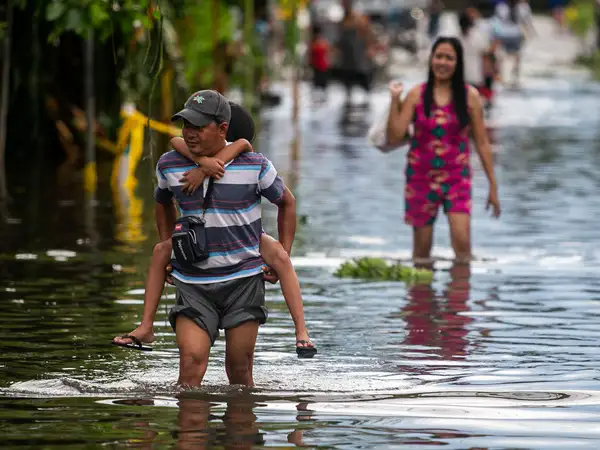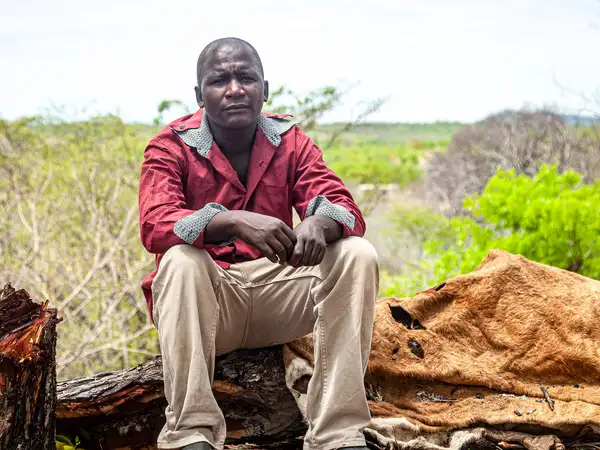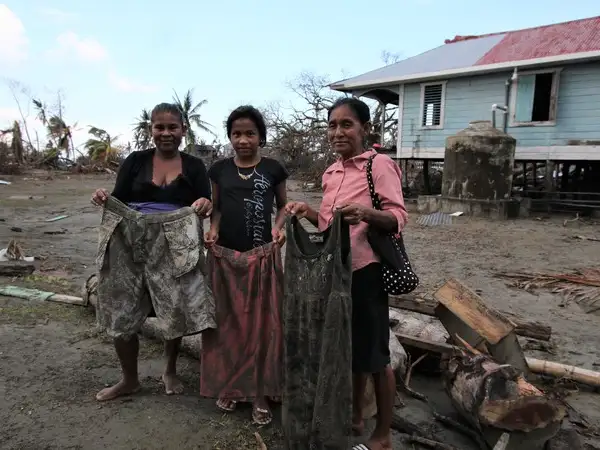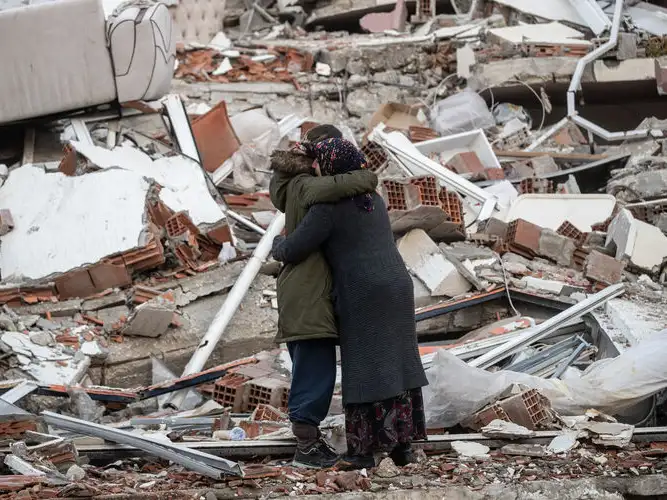

In November 2020, the Philippines was hit with two record-breaking typhoons that caused widespread destruction. Photo credit: Caritas Philippines (NASSA)
Sadly, the climate crisis is increasing the frequency and severity of all natural disasters – typhoons, cyclones, hurricanes, droughts, floods and forest fires. Even when families survive these deadly disasters, they often have very little to return to: homes are destroyed, possessions are lost, and once fertile land is left desolate.
Every second counts
Very few of these emergency situations make the headlines. But when lives are at stake, every second counts. We cannot wait around for the news cycle to catch up. That’s why we don’t.
Working alongside local experts, we’ve been responding to humanitarian emergencies for more than 50 years. It’s an integral part of what we do. We reach the remotest places and put your donations to good use straight away, as soon as disasters hit, to help people survive, rebuild and live with dignity.
At the end of 2019, at the beginning of the coronavirus pandemic, the UN warned that Zimbabwe faced a major food crisis following an extremely severe period of drought. Around 8 million people were seriously affected.
This was an emergency food crisis on an enormous scale. CAFOD supporters gave £50,000 to the immediate emergency response. Local experts carried out rapid assessments in the worst-affected communities and, thanks to the trusted Church network, we had instant access to the most vulnerable families with emergency food and safe, clean water.


Titus is a farmer in Zimbabwe.
Droughts in Zimbabwe
Crippling droughts in Zimbabwe have turned the earth barren – it is impossible for hardworking farmers like Titus to grow enough crops to survive.
Titus told us: “I lost 15 goats and six cows to hunger. The amount of water my wife collects is not enough to feed our children, let alone our livestock.”
Every life matters
The climate crisis is making life harder for the poorest people around the world every day, not just when disaster strikes. Families are being forced to accept drastic changes to their way of life – to adapt to a ‘new normal’. That’s why, in places that have suffered natural disasters, your support does more than just provide life-saving aid in the first days and weeks – it helps families to rebuild and better prepare for future disasters, and to live with dignity.
A year after the drought, in November 2020, farmers in Nicaragua lost an entire year’s worth of crops to Hurricane Eta and many homes were completely destroyed.


The indigenous community, called Wawa Bar, was at the epicentre of Hurricane Eta, on the Caribbean side of Nicaragua. Photo credit: Catholic Relief Services
“Children, the elderly and the vulnerable are crying out for help ... We cannot do this alone”
Around the same time, on the other side of the world, two record-breaking typhoons hit the Philippines. Entire towns and villages were submerged. Electricity and water supplies, as well as transport links and crops, were obliterated.
As the crisis struck, Reverend Fr Tony Labiao of Caritas Philippines said:
“Children, the elderly and the vulnerable are crying out for help. Some have died already. We cannot do this alone. It is imperative that we leave no one behind. Let us all help each other. Every second counts. Every life matters.”
Thanks to donations from people like you, and the incredible skill and resilience of local experts, we were already on the ground, working through the Church network to get vital aid to the people who needed it most.

Join us today with a monthly donation
Helping in emergencies needs all of us. Before, during and after a crisis, our local experts are working in their own communities to help families prepare, survive and rebuild.
With more emergencies than ever, there has never been a greater need for us to put our faith into action, together.
Please join us today with a monthly donation to our emergency response work. You can also sign up to receive prayer texts for when there is an emergency.

